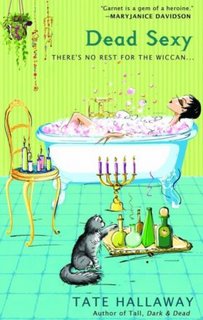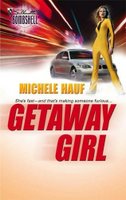I’m taking an online class on self-promotion from the women who run Blue Moon Communications, and the first set of lectures are all about how an author “brands” (as in builds a brand name for) themselves. If you haven’t heard of this concept, consider yourself lucky. The idea is that any product (even things like authors or museums) can benefit from the kind of advertising that works for say, Coca-Cola. A consumer is supposed to form an association with you and your work, which solidifies a particular image in their head, like when I say “McDonald’s” you think: fast, ubiquitous, cheap, and utterly evil food. Okay, you’re not supposed to think that last one, but you get the idea, right?
Lot of people buy into this idea as a good thing. When I was still working at the Minnesota Historical Society, I sat through an entire meeting devoted to getting to the core ideas MHS wanted to express as they began the process of branding themselves. My local chapter of RWA has had special lecturers come in and teach authors how to do this also.
Here’s my problem: I’m not convinced this is a good idea for authors.
However, I can see this sort of advertising working well for places like Minnesota Historical Society. Even though it might be a nebulous idea like ‘fun learning,’ what MHS produces can be distilled into sell-able concepts or information bytes.
One of our first assignments for my promotion class was to think of three well-known authors and to consider what their brand might be. All the people I could think of – Stephen King, Anne McCaffery, and J.K. Rowling – might have been “branded,” but they were also pigeonholed. Stephen King is the horror guy, Anne McCaffery is the dragon lady, and J.K. Rowling is the kid wizard woman, even though they might want to be someone else. They’re stuck delivering stories in that same niche. Not “branded,” so much as in “bondage.”
Yeah, you’re saying, but branding clearly works. Those guys are famous! I’m sure they’re crying all the way to the bank. I mean, once you’re THAT famous, presumably you are writing fulltime and may have the time to write what you want on the side under a pseudonym… or maybe you finally have enough money that you simply fall into some kind of intense bliss of uncaring joy.
I still don’t buy it.
Part of the problem is that I don’t believe this works from the ground up, only in reverse. Let me explain. Stephen King, Anne McCaffery, and J. K. Rowling didn’t set out with a brand in mind (especially King and McCaffery, they both started writing in the 1970s). They wrote what they wanted to. It just so happened that what they wrote struck a cord in the (inter)national market. They wrote what people wanted, WHEN they wanted it. By accident. Not by design. My point is, they were already bestsellers. To my knowledge, none of them set out to be the dragon lady or horror guy or the whatever babe du jour.
I’ll grant that perhaps one of the salient features of being a bestseller is writing something that’s easy branded. A simple message is a broad one. That makes sense to me.
But I’m not entirely convinced that distilling one’s own work into a sellable catch phrase is really going to suddenly translate into a broader appeal, especially when the book is already out there. The assumption is that an author continues to build their brand-name recognition with each book. This is great a great idea… if you can last that long. One of the reasons authors are so desperate to try ideas like branding, is because the reality of the book buying world is that books don’t have a very long shelf life. That, my mentors at Blue Moon would tell me, is why you brand the AUTHOR, not the book.
Again, great in theory. Let’s say an author brands herself the telepathic dolphin chick, and no one wants stories about mind-reading sea mammals? Well, then, my instructors very bluntly explain that if the books the author writes bomb, s/he needs to take on a penname and try again. You’ve effectively killed the author by branding them to the type of books that died (of course, this happens anyway, because of the way books are bought by chain bookstores.)
Whereas I can see that authors who already have established reputations can be said to have a brand, no one that I can think of has risen out of the unwashed masses by branding themselves as, say, the tarantula chick-lit writer. And I don’t know what branding yourself the sassy arachnid author gets you, other than the potential to have to be that for as long as people want stories like that and you’re forced to change your name and do it all over again.
That’s not to say that I don’t think some of the advice given as part of this whole branding idea isn’t sound. It’s perfectly reasonable to consider what your theme is and to try to have it reflected in your web presence, in print, in your professional demeanor. In a lot of ways, because the publishing industry is set up in such a way that branding is its own self-fulfilling prophesy (which is to say, you get sort of branded by the marketing department anyway, and, as I said, big chains attach your name to your sales figures so you sink or swim with your series no matter what), you might as well try to paddle the boat rather than just going along for the ride. But, I don’t think an author should fool themselves into thinking that if they can crack this mythical branding nut, they will suddenly find themselves on the New York Times bestseller list.
I really think that the only way you get to be a bestseller is by luck.
Or by magic.

















